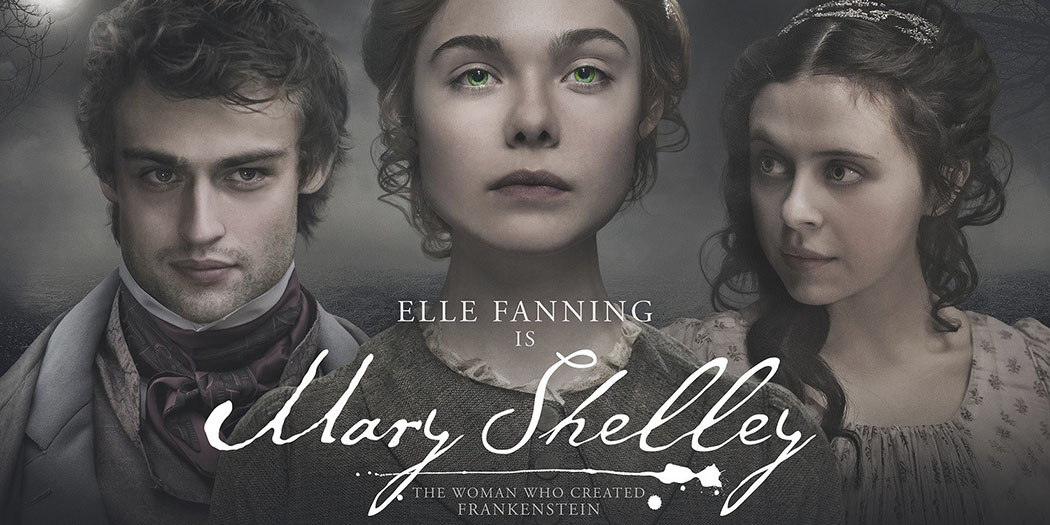
Under the sign of an aberrant suture, like the one of Frankenstein, Haifaa Al-Mansour’s drama is a mélange of frailty and fighting spirit, of hunted innocence and vengeance’s fury going down in the relationship between Mary and Shelley, in its psychological obsessions and unacceptable losses. Daughter of two key-figures of the English Enlightenment, of whom she shares revolutionary ideas, Mary Shelley is at the heart of a movie intended to celebrate the writer's figure and to reiterate the debate on man-woman relationships.
Passionate about gothic literature and ghosts, Mary often goes in a cemetery dreaming of writing her novel. During a spell in the country, she meets restless poet Percy Shelley, married with childern, who seduces her and makes her fall madly in love with him. Their desider takes over and the lovers run away along wth Mary's younger sister. The three of them form a singular ménage, between ups and downs, misery and royalty. The very nobility that is preached but never applied by Lord Byron, famous and self-absorbed dramatist who challenges her on page and in life. Mary accepts and writes Frankenstein, winning eternity. With a novel (the novel), she succeeded in emancipating herself, producing over the year feminist and progressive works.
Embodying her on screen is Elle Fanning, surrounded by a male cast whose physiognomic and interpretative elasticity is reduced. She is the centre of a story where she will soon become the object of all desires. Elle Fanning belongs to that category of actors who need to do almost nothing to catch the eyes and it’s precisely what Nicolas Winding Refn portrayed in The Neon Demon.
In a condition of historical passivity, she finds an escape line and goes further than the film containing her and a society made out by men for men. Her Mary Shelley breaks fictional corsets, finding in herself an abyss of darkness to draw from to design her creature.
After denouncing fundamentalism and poligamy in Saudi Arabia and directing the first Saudi film in history (Wadjda), with Mary Shelley Haifaa Al-Mansour continues her personal research on exclusion. On the front line for the female cause, her look turns this time to the past in the Old Continent where she picks a young woman and her revolutionary enthusiasm. Stubborn just like Wadjda's protagonist, a little girl who is determined to earn a bycicle in a country forbidding women to ride it, Mary does the same in a claustrophobic time for her kind. In a dark and oppressive world she finds her most intimate voice and puts it on papaer, signing the last gothic novel and the first science-fiction literary work. Al-Mansour has the merit of choosing an actress capable of a modern articulation of Mary Shelley, encouraging once again the right to difference and to optimism. Optimism that is currently reserved only to viewers and forbidden to (Saudi) women who have no other perspective than surviving in a country producing ten million oil barrels per day and one film per century.

Haifaa Al-Mansour is the first female filmmaker in Saudi Arabia and is regarded as one of the most significant cinematic figures in the Kingdom. She finished her bachelor's degree in Literature at the American University in Cairo and completed a Master's degree in Directing and Film Studies from the University of Sydney. The success of her three short films, as well as the international acclaim of her award-winning 2005 documentary Women Without Shadows, influenced a whole new wave of Saudi filmmakers and made the issue of opening cinemas in the Kingdom a front-page discussion. Within the Kingdom her work is both praised and vilified for encouraging discussion on topics generally considered too taboo, like tolerance, the dangers of orthodoxy, and the need for Saudis to take a critical look at their traditional and restrictive culture.